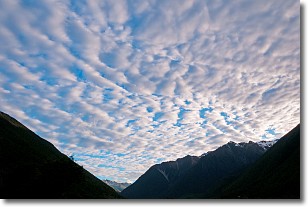Weather Alert in Oklahoma
Flood Watch issued April 29 at 8:56AM CDT until May 2 at 5:22PM CDT by NWS Norman OK
AREAS AFFECTED: Grady; Garvin
DESCRIPTION: ...The National Weather Service in Norman OK has issued a Flood Watch for the following rivers in Oklahoma... Washita River at Lindsay affecting Garvin and Grady Counties. * WHAT...Flooding is possible. * WHERE...Washita River at Lindsay. * WHEN...From Wednesday afternoon to Friday afternoon. * IMPACTS...At 21.0 feet, Agricultural lands... rural roads... and oilfields from near Lindsay to near Maysville will see overflow depths near 3 feet. The Washita River may inundate low-lying streets at the outskirts of Lindsay. * ADDITIONAL DETAILS... - There is no current observed data. At 7:00 AM CDT Tuesday the river stage was estimated at 10.7 feet. - Forecast...Flood stage may be reached tomorrow afternoon. - Flood stage is 18.0 feet. - http://www.weather.gov/safety/flood
INSTRUCTION: If you are in the watch area, remain alert to possible flooding. Additional information is available at www.weather.gov.
Want more detail? Get the Complete 7 Day and Night Detailed Forecast!
Current U.S. National Radar--Current
The Current National Weather Radar is shown below with a UTC Time (subtract 5 hours from UTC to get Eastern Time).

National Weather Forecast--Current
The Current National Weather Forecast and National Weather Map are shown below.

National Weather Forecast for Tomorrow
Tomorrow National Weather Forecast and Tomorrow National Weather Map are show below.

North America Water Vapor (Moisture)
This map shows recent moisture content over North America. Bright and colored areas show high moisture (ie, clouds); brown indicates very little moisture present; black indicates no moisture.

Weather Topic: What is Snow?
Home - Education - Precipitation - Snow
 Next Topic: Stratocumulus Clouds
Next Topic: Stratocumulus Clouds
Snow is precipitation taking the form of ice crystals. Each ice crystal, or snowflake,
has unique characteristics, but all of them grow in a hexagonal structure.
Snowfall can last for sustained periods of time and result in significant buildup
of snow on the ground.
On the earth's surface, snow starts out light and powdery, but as it begins to melt
it tends to become more granular, producing small bits of ice which have the consistency of
sand. After several cycles of melting and freezing, snow can become very dense
and ice-like, commonly known as snow pack.
Next Topic: Stratocumulus Clouds
Weather Topic: What are Stratus Clouds?
Home - Education - Cloud Types - Stratus Clouds
 Next Topic: Wall Clouds
Next Topic: Wall Clouds
Stratus clouds are similar to altostratus clouds, but form at a
lower altitude and are identified by their fog-like appearance, lacking the
distinguishing features of most clouds.
Stratus clouds are wider than most clouds, and their base has a smooth, uniform
look which is lighter in color than a nimbostratus cloud.
The presence of a stratus cloud indicates the possibility of minor precipitation,
such as drizzle, but heavier precipitation does not typically arrive in the form
of a stratus cloud.
Next Topic: Wall Clouds
Current conditions powered by WeatherAPI.com




